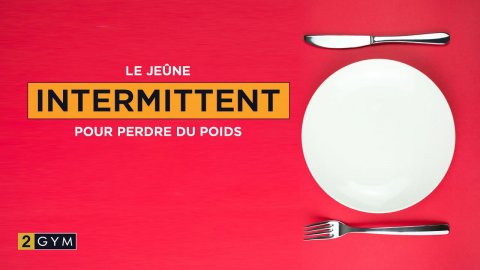Intermittent Fasting Patterns
There are actually two types of intermittent fasting - they are as different as night and day.
The first involves completely abstaining from food once a week for an entire day, the second involves abstaining from eating for a specified period each day. The first is quite interesting and offers many benefits, but it is less suitable for our goals.
Therefore, I will not dwell on the first one and will move directly to the second - in the future, when I refer to "intermittent fasting," I will be referring to this one.
The Essence of Intermittent Fasting
Here it is: the essence of intermittent fasting is to ensure a prolonged period during which insulin is absent from the blood. Why is this important?
The fact is that during periods when this hormone is present in the blood, fat "burning" is impossible - worse still: there is an accumulation of fat reserves (usually, although not always). On the other hand, when insulin is absent from the blood, the process of using fats as an energy source is activated.
How Long Should Fasting Last
It's as simple as that. In fact, we all fast intermittently when we sleep, but proponents of intermittent fasting believe that this period is not long enough and recommend extending it, often significantly.
Ideally, voluntary fasting should be much longer than the period during which eating is allowed.
In general, it should be like this: during a certain period of the day, you eat, but you spend a larger part (emphasis on the first syllable) abstaining from eating. This larger part also includes the time you dedicate to sleep.
And a clarification: the food abstinence period must be continuous.
By the way, it is not at all necessary to follow intermittent fasting every day: an approach can be considered effective, where you limit the eating period 3 to 4 times a week. However, during this fasting period, it must be quite long, lasting 18 to 20 hours.
Where to Start?
How to "integrate" intermittent fasting into your daily routine so that you do not want to abandon it the next day and can see its visible effects, so to speak, with the naked eye?
I will show it by my own example: I have been practicing intermittent fasting for 6 consecutive years and I am not tired of it now.
Intermittent Fasting Real Experience
I started with a fasting period of 12 hours - this is actually how I would recommend all "newcomers" to proceed. In practice, it looked like this: I started my dinner around 7:30 PM and finished around 8 PM.
I went to bed around 10 PM-11 PM and woke up around 6 AM. I had my breakfast at 8 AM. Nothing too complicated at first glance, but even this abstinence was quite difficult for the first 2-3 days.
Gradually, however, the sensation of hunger became less and less intense, and by the end of the first week, I had moved to a "fasting" period of 14 hours: the same time for dinner, but breakfast was advanced by two hours.
The additional two hours posed no problem, especially since I discovered a few useful "tricks" that I will share with you a little later.
Intermittent Fasting for Weight Loss
Frankly, a 12-hour fast yields minimal results - in fact, you just maintain your weight at the same level. But at least you don't gain weight, which is already good.
On the other hand, a fasting period of 14 hours proved more effective. Once you cross the 14-hour mark, you are taken with enthusiasm: how much longer can you keep going?
I added about half an hour each week, and I eventually opted for a fasting period of 16 hours: maintaining it turned out to be quite easy, and the results were excellent.
On the other hand, a fast of 18 to 20 hours is quite difficult: that's why it is recommended not to resort to it more than 3 to 4 days a week, returning to a normal diet on other days.
And I must say that this approach often proves more effective than fasting 14 to 16 hours every day. This is the one I am currently following.
How to Control the Sensation of Hunger
Some "tricks" to control the sensation of hunger:
- Physical activity significantly reduces the sensation of hunger. This is due to the increase in adrenaline in the blood - this hormone momentarily makes you forget about the existence of food. So, I got into the habit of exercising in the morning. Or at least, warming up and stretching.
- A small amount of glutamine can also significantly reduce the sensation of hunger - I usually take 3 to 5 grams of this amino acid before going to bed and in the morning after waking up.
- I always have a glass of water at hand - you should drink water as often as possible. Water temporarily fills the stomach and gives a feeling of satiety. You can also drink green tea - without sugar or sweetener.
- You can also take BCAA amino acids with creatine in the morning. Preferably choose those that are in powder form, without any amount of carbohydrates, but with added flavors. A serving helps to forget about food for about an hour. By the way, I will talk a little more about BCAA amino acids later.
The Benefits of Intermittent Fasting
- Control of the sensation of hunger: You quickly learn to control your hunger; generally, even after the end of intermittent fasting, you can easily maintain the caloric content of your diet at a reduced level.
- "Training" glycogen reserves: The fact of almost completely emptying glycogen reserves during the fasting period, then replenishing them in the muscles, leads to an increase in the capacity of muscle fibers to store glycogen.
- Adaptability and flexibility: Intermittent fasting is a very flexible diet, easily adaptable to individual needs and circumstances.
- Possibility of use in chronic diseases: So far, I have not encountered chronic diseases (I mean the most common ones) for which intermittent fasting would be contraindicated. Moreover, in some cases of chronic diseases, it can bring tangible benefits.
Intermittent Fasting and Sports
I will introduce you to the results of an interesting study. This study caught my attention because it involved athletes in training. I will not give you the complete results, I will only stop at two points.
The participants in the study were divided into two groups: the main group (MG) and the control group (CG).
Both groups dedicated themselves to strength training sessions three days a week. The participants of the control group did not follow any diet, while the participants of the main group did not follow a diet on training days, but observed a fasting period of 20 hours on other days of the week.
Study Results
It is not surprising that, after eight weeks, members of the MG had "burned" significantly more fat. Two facts particularly struck me.
Firstly, despite a significant caloric deficit on diet days, the participants of the MG did not seek to compensate for it on the days they were not on a diet.
Moreover, used to this deficit, their bodies did not even demand the amount of calories considered normal previously on "rest" days! In other words, the athletes of the MG were also in a caloric deficit on training days.
Secondly, the progression of strength performances in the MG far exceeded that of the CG. In particular, in the bench press.
FAQ
Can anything be consumed?
Here, there are two rules:
- It is desirable that the amount of energy consumed be less than the amount of energy expended in the day.
- It is very desirable to avoid anything that can increase the level of insulin in the blood for an extended period.
Will cortisol not destroy the muscles during fasting?
No, it will not destroy them. There is nothing serious for the muscles in the fact that the level of cortisol increases periodically. If you decide to follow a "strict" version of intermittent fasting (18-20 hours), it is advisable to devote 3 to 4 days a week to the "recharge phase," that is, abstaining from diet. Or use "anti-catabolics."
The "Anti-Catabolics"
A powerful "anti-catabolic" is insulin, but we exclude it. Another powerful "anti-catabolic" is oxandrolone, but it is unacceptable for many. A weaker but still effective option is clenbuterol, but not everyone accepts its use.
Personally, to fight catabolism, I am used to taking branched-chain amino acids (BCAA). Twice during the fasting period, usually during a period of more than 16 hours without food.
By taking BCAAs, we cannot avoid the appearance of insulin in the blood, but experiments show that taking five grams of the supplement only slightly increases insulin, and it disappears from the blood after 20 to 30 minutes.
Conclusion
In my opinion, intermittent fasting can be considered an ideal diet option, both for those who simply want to lose weight and for strength athletes.
As for the difficulty... Any task seems difficult only at the very beginning. You will quickly get used to intermittent fasting and the daily abstinence from food for a certain time will seem quite natural to you.















Log in with ( Sign Up ? )
or post as a guest
Be the first to comment.